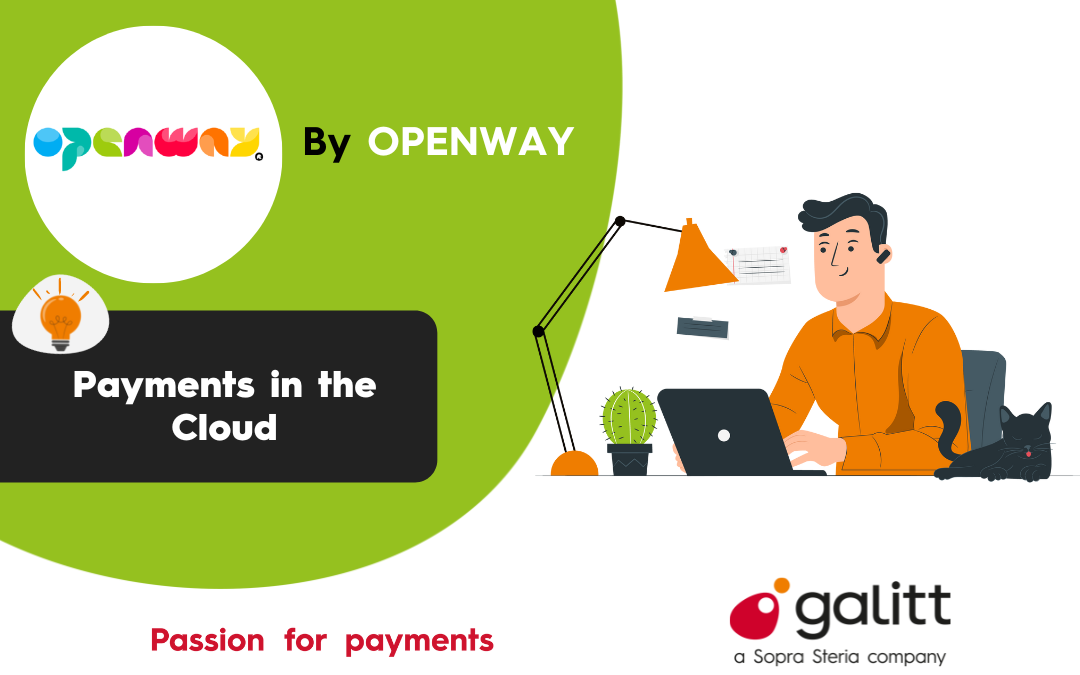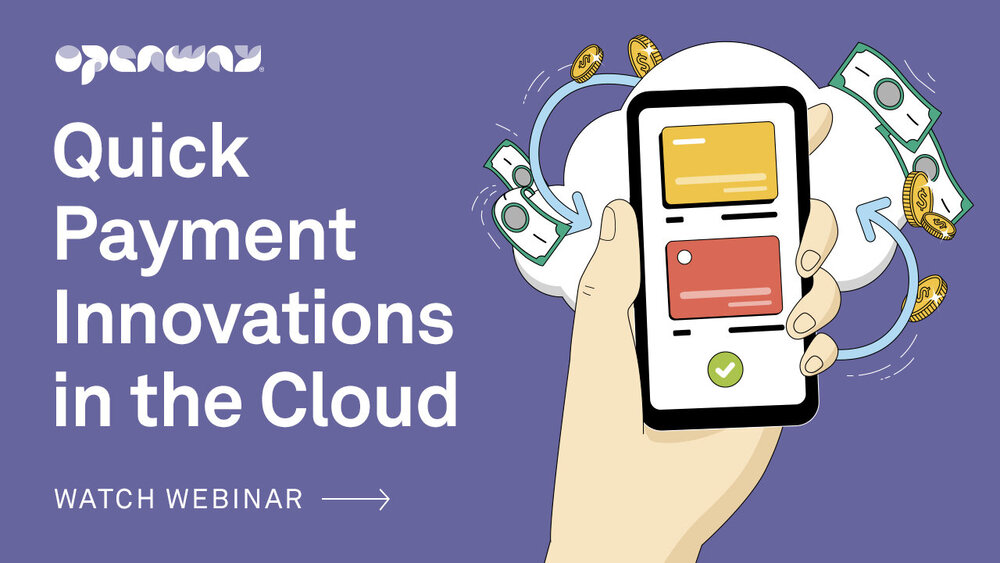Launching Payments in the Cloud: a Checklist for Banks and Fintechs

Whether a company is launching a new digital bank from scratch or seeking a new platform for its payment business, the question of cloud use will almost certainly arise. Most organizations look into the cloud while planning their new infrastructure as the best bid to improve time to market, operational efficiency, and scalability. Cloud is no longer viewed as a playgroup of fintech startups. Incumbents are now including the cloud in their long-term digitalization strategies: just recently, Lloyds has announced that it will be moving 20% of its applications to the cloud by 2024.
OpenWay, the leading provider of digital payment solutions in the cloud, invited Oracle, a major cloud platform provider, and Celent, the leading research and advisory firm focused on technology for financial institutions globally to address common questions asked by card issuers and merchant acquirers in their journey to the cloud. The webinar shed light on:
- Challenges of running card issuing, merchant acquiring and digital wallet businesses in the cloud
- Advantages beyond cost-efficiency: the tangible technical and operational benefits of running payments in the cloud
- Best practices and experiences in selecting a cloud partnership, debunking common compliance and security myths.
- Tips and strategies for fintechs and incumbents at the beginning of their journey to the cloud
Here is a summary of some topics that were covered in the OpenWay webinar. You may also access the full version.

New business models in the cloud
According to a survey conducted by OpenWay in 2021, 50% of banks and fintechs globally believe that digital wallets will be moving to the cloud faster than all other payment areas. Most digital wallets are created to become payment and lifestyle ecosystems, which the cloud is built to facilitate. Wallets do not need solve the problem of integration with HSMs and payment schemes, unlike end-to-end issuing and acquiring in the cloud. Lately, OpenWay and MyHSM have discussed the conundrum of cloud HSMs.
The new generation of payment processors is taking advantage of speed-to-market and scalability, which are the key benefits of the cloud. Enfuce, a Nordic cloud payments processor and an OpenWay client, onboards fintechs and neobanks to its Card-as-a-Service in just 8 weeks. Through its extensive use of APIs, the company provides open banking services and calculates carbon footprint consumption for each transaction. Acquirers use the cloud to test new VAS for their merchants without interrupting the core processing service and ensuring multi-geographical high availability. Recent research by OpenWay on NewSQL and NoSQL DBMS proved that companies can achieve significant scalability and real-time transaction processing capabilities in the cloud without compromising data security and consistency.
Card issuers and merchant acquirers enjoy more operational flexibility in the cloud. Before, they had two options: run the payment platform themselves or outsource almost everything to a processor. Now they have a choice of SaaS, IaaS, PaaS, and everything in between. Banks can still enjoy the advantages of on-premise licensing, but can choose to outsource their IT maintenance and PCI compliance to a vendor. Some companies running OpenWay solutions via SaaS can also manage their own product configuration if they chose to better control time to market for new card and merchant acquiring products.
Questions for vendors
To navigate around the buzz and understand what cloud capabilities a payment solution vendor is actually offering, you might raise these questions during discussions.
- Expertise : Check the vendor’s live references in the cloud for your type of payment business. Is the size of the reference comparable to your size? Talk to their clients.
- Flexibility : What operation models can the vendor offer? What kind of clouds do they support, and how well are they connected with them?
- Scalability : Does the application have a microservices architecture, both for online services like transaction authorizations and for back-office operations like client onboarding and new card creation? Check what DBMS are supported, including open source NewSQL / NoSQL DBMS.
- Integration : What standard is their API based on? Will it simplify the integration with your current systems and will your developers be able to work with it?
Maria Vinogradova, Head of Strategy and Market Intelligence at OpenWay: “Payments is a technology-intensive, industry and technologies for cloud payments are becoming constantly developed and perfected. Secure cloud solutions for financial services are becoming more available, allowing increasing numbers of financial institutions to explore ambitious architectures and business models.”
About OpenWay :
OpenWay Group is the developer of Way4, a digital banking and payment software platform. It covers every aspect of the payments business — account management, card issuing, merchant acquiring, transaction switching, digital wallets, tokenization, and fleet cards. Headquartered in Belgium, OpenWay has office locations around the globe and serves clients in 83 countries.
OpenWay holds a #1 global ranking in software solutions for Payment Processing Platforms by Aite, also by Gartner and Omdia. It was ranked “Market Leader in Digital Wallets” by Omdia and awarded as “Best Payment Software Solution Provider in the Cloud” by PayTech.



